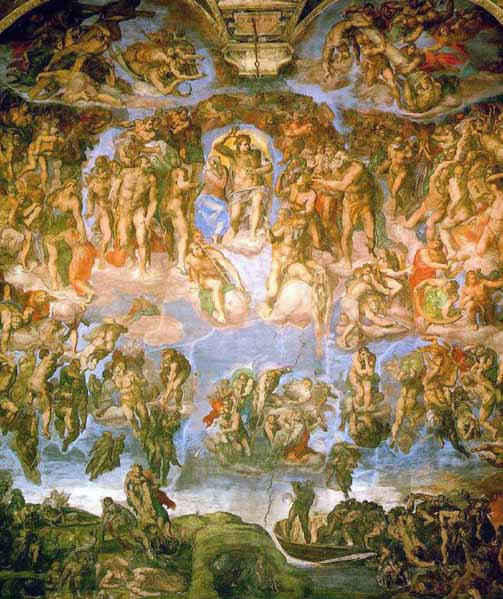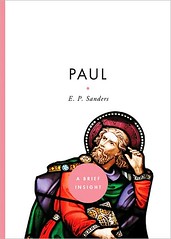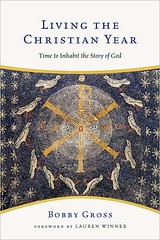Is eschatology really an axis of faith?
Published by matthew @ 14:00 | | permalink & email
I recently filled out a form in which I was asked to sign a doctrinal statement of belief to volunteer working with kids. It is a twelve section document, and I'm easily nodding my head in compliance from the first to the tenth. Affirming the first ten, of which I am ninety-nine percent in concert, I assume I have subverted any thought of apostasy. (The one percent deviation is merely in reference to the repudiation of infant baptism, which is a sacrament I do honor.)
The last two, however, I find controvertible. They read as follows:
SECTION 11: THE SECOND COMING OF CHRIST
We believe in the personal, imminent coming of the Lord Jesus Christ for the Church. The second coming will be followed by the tribulation on earth and will culminate in the return of Christ to earth to set up His millennial kingdom (I Thessalonians 4:13-18; Philippians 3:20; Matthew 24:15-31; Zechariah 14:4-11; Revelation 20:1-6).
We believe the souls of believers in Jesus Christ do, at death, immediately pass into His presence, and there remain in conscious bliss until the resurrection of the body at His coming for the Church, when soul and body reunited shall be associated with Him forever in glory. We believe the souls of unbelievers remain after death in constant misery in Hades until the final judgment of the Great White Throne at the close of the millennium when soul and body reunited shall be cast into the Lake of Fire, not to be annihilated, but to be punished with everlasting separation from the presence of the Lord (Luke 16:19-26; 23:43; II Corinthians 5:8; Philippians 1:23; II Thessalonians 1:7-9; Revelation 20:11-15).
Section 11 is simply vexing to me in that pre-tribulation millennial dispensationalism still shows it's ugly head as often as it does. But, this really isn't the point. The point is that eschatology is the great unknown in Christian theology - it is the one thing that just simply hasn't happened yet. It seems really odd to me to so definitively posit a totally unknown event as a major axis for one's statement of faith. This statement is short, but indeed loaded with underlying theological implications, especially regarding Israel, the Church, and God's sovereignty (specifically in how God is able, or unable, to protect His Chosen). Besides, if one was to take a purely Biblical interpretation and forecast the events as described, I find it difficult to deviate much from a Laddian post-trib millennialism. (Even having said that, I often find myself leaning towards amillennialism.) However, apart from my personal disagreement with the final stance, I'm really just perplexed by the inclusion of such a circumscribed assertion as a major point within a statement of faith. The majority of Godly men throughout history could not sign this. The list would certainly be absent of those within reformed traditions and would conversely generally be inclusive of Southern Baptists and Bible churches (though technically also many Charismatic Pentecostals and in modified form Latter Day Saints and Branch Davidians...which should give pause. Sci-Fi fans, though, largely could as well, I'm sure). Proponents of John Calvin or Martin Luther, however - such could not work with the kids, evidently. Neither could Allister McGrath, Michael Horton, J.I. Packer, John Piper, nor the majority of respected theologians and Christian teachers. I find this mildly problematic.
Section 12 contains some detail that again, perhaps true or not, I find hard to justify inclusion within a statement of faith. The details of manner and time in which one passes into the next, both within an intermediate context and that of eternity, seem to me to be highly speculative. Mind you, we're talking about a transition from a world bound upon time into an atemporal environment, so this causes at least mild problems of interpretation for finite minds...at least I would assume so. I mean, if you believe that the soul skips over Sheol or any similar intermediate dwelling, instead to immediately transition into worlds of either ecstasy or horror, then great, but I just don't think it says anything about the validity of one's faith and salvation in Christ. Or maybe you indeed do disagree with Pinnock and his view of annihilation, but would you be so quick to discount similar positions on conditional immortality by Wesley or Justin Martyr? What of the tentative support from John Stott or N.T. Wright? John Stott and N.T. Wright?!?! Personally, I agree with F.F. Bruce in my agnosticism regarding annihilationism and his assertion that it is "certainly an acceptable interpretation of the relevant New Testament passages." Furthermore, C.S. Lewis definitely could not sign off on this section. So, basically, we're saying that Wesley wouldn't be allowed to work with the kids and sing them some of his songs, and Lewis couldn't read them his books. Again, I see this as slightly alarming.
I understand the desire for an eschatological inclusive doctrinal statement which is consentient among the organizational leaders. This is rational; however, I honestly think it is unnecessary when discussing the fine points of eschatology. Yet, this is not my principal point. My point is that I think that the fine points of eschatology are largely extraneous when it comes to defining or justifying an individual's Christian belief. Thus, my personal opinion would be to qualify membership and voluntary status based upon subscription to a fundamental statement of core doctrine, anchored in Soteriology, Christology, and Theology Proper. These are, indeed, the fundamentals of true, salvific Christian faith. An additional level of doctrine could then easily be appended upon the core doctrinal canon, which would comprise of Angelology, Pneumotology, Ecclesiology....and yes, Eschatology, though again, I think absolutes should be carefully weighed. (I think Pneumotology easily deserves to be in the core as well, but I can see it either way. Elements of Theological Anthropology could be seen in both core and secondary doctrinal statements.) In this way, the organization would maintain an official doctrinal position and yet be flexible on the nonessentials and that which is largely negotiable with its constituents. Affirmation of the essentials, however, would be necessary for membership and voluntary participation.


Well, we finally picked out which puppy we wanted, and on March 9 we get to pick up our beloved puppy Piper. It's been a long time coming, and we're so excited. She's the perfect color, size, and temperament that we hoped for...and it helps to get first pick of the litter! Here's a little description from our breeder:
Tiny (litter name) has been the most alert puppy and looks at us with her sweet little eyes to be picked up the most often. She seems very smart and loves to be cuddled and held. Most likely she will be more of a small to medium build. She is gaining weight well but started out smaller than the others. She has the smaller head and facial features. She would do well with a family that can give her lots of attention and spend time training her. She has a lot of potential. I think we’re going to miss her the most. She has so much personality and is very smart.
The vet’s conclusion was: “…outgoing and friendly, adjust well in situations in which she receives regular training and exercise, flexible temperament that adapts well to different types of environments, provided she is handled correctly.”
Yeah, she's going to be the greatest dog ever.

Today's background is brought to you by this guy:

Here's the basic story, as told my Facebook Wall (read bottom up, and disregard United Nations of Beer talk):

The real problem with Fat Tire, I might say though, is that after one too many, you end up looking like this:

I would like to make a brief statement.
Published by matthew @ 14:00 | | permalink & email
I generally hate all things Microsoft, Linksys, and Time Warner Cable. These are probably the top three things in the world that makes me want to curse. Well, those and "American Light Lagers."

So, Romney's out. I'm honestly really surprised. Romney was able to do two things I thought unbelievable:
1. He was able to get himself lumped in as a candidate assuming Evangelical support. Romney lost me completely when he had the gall to posit Mormonism within the Christian faith - such intellectual dishonesty is staggering. It was I think this obvious and blatant manipulation in trying to mislead the public that was my major problem with him on this issue - not his actual religious position itself. The sad thing is that I would bet 67% of people don't realize that he was dishonest in his statement or what I'm even talking about in a differentiation between Mormons and Christians. Romney, however, I'm sure knows...as do I. Again - it is not his faith itself (though troublesome to a degree) but his intellectual dishonesty that really turned me off.
2. He has achieved being labeled as "the conservatives conservative." For the majority of McCain's career, he has been solidly conservative. However, McCain doesn't put his party over the country...though I like it best how my wife puts it: "He's just the only one that doesn't have his head up his ass." Well said. Anyway, McCain isn't afraid to go against party lines and won't pander to party heads. This, I think is a great part of his appeal. Let's look at the infamous tax cut he didn't vote for. This is a great example of the lame excuses Rush and other partisan politic dimwits try to twist to make him look liberal. Yeah, McCain didn't vote for the tax cut; however, he did so because there was no correlate cut of federal spending. Makes sense, eh? Anyway, I'm not today trying to talk about McCain (no candidate is perfect - sure there are things about even him that I'm not 100% on board with), but the point is that a guy like this has been labeled (as Jon Stewart so humorously poked fun) as a long lost Kennedy cousin who's just waiting to get to the White House and rip off his mask to reveal himself as king of liberals. Romney, however, has been able to position himself as the conservative's savior. Are you kidding me? This guy flips all over the place, so my first question is which Romney are you talking about? As my good friend earlier reminded me, Romney is the man that brought Universal Health Care to Massachusetts. Yeah, that's a candidate grounded in limited government and lower taxes. Good grief.
Anyway, Romney ran a good race, but he's out. He evidentially hates both McCain and Huckabee, so I'm curious to see where he positions himself. He was no doubt an interesting candidate in what has been a high-stakes run for the Presidency. I just shocked he got out before Huck.

twitter.
recently.
- The Blog has moved - Please join me.
- The Blog 3.1
- New Post @ Anthological Prolegomena.
- New Post @ Anthological Prolegomena.
- New Post @ Anthological Prolegomena.
- Merry Christmas!
- New Post @ Anthological Prolegomena.
- new post @ anthological prolegomena.
- New Post @ Anthological Prolegomena.
- New Post @ Anthological Prolegomena.
comments.
matthew.
photo.
local favorites.
friends.
- Bizzaro World (Liz)
- blake burris (Blake)
- candidly katie (Katie)
- dandeelines (Dan & Diedra)
- drank the water (Veronica)
- dropping swords (John B.)
- e blinks (Erynn)
- glades of light (Patrick)
- grace & peace (Dan)
- grand larseny (Daniel)
- hanging with the hammacks (Adam & Sara)
- heytyson (Tyson)
- hi i am matt (Matt)
- Idaho Heart (Mike)
- It's Chinese to Me (John R.)
- Jay's Blog (Jay)
- John McGee Live (John McG.)
- Let All The Earth... (Trey)
- Love on the Internet (Creth)
- Ms Rory in the Heart of Texas (The Badrina Family)
- Mission and the Church (Will)
- Mudd between my toes (Ryan)
- Performing the Faith (Ben)
- Press the Star Key (Jerod)
- Prof's Soapbox (Dr. Wallace)
- Some Kind of Ride (Kimberly)
- SonnyD.com (Sonny D)
- stumbling through the the post-blog world (Ben)
- The Boudreaus (Stephen & Shelley)
- The Crum Family (Will & Jenny)
- The Dodd Blog (Kate & Ryan)
- The Mathews Family (Mark)
- The Iles (Angie)
- The Myers (Josh & Amanda)
- Theological Ruminator (John Mark)
- The SMFL Blog (Commish)
- The Williams Family (Travis & Amy)
- The Youngs (Mary)
- Trading Tacos (Nick)
- us (Jonny5)
- watermark west (Michael)
site nav.
old conversations.
- 09.2004
- 12.2004
- 03.2005
- 04.2005
- 05.2005
- 08.2005
- 11.2005
- 05.2006
- 07.2006
- 08.2006
- 09.2006
- 10.2006
- 11.2006
- 12.2006
- 01.2007
- 02.2007
- 03.2007
- 04.2007
- 05.2007
- 06.2007
- 07.2007
- 08.2007
- 09.2007
- 10.2007
- 11.2007
- 12.2007
- 01.2008
- 02.2008
- 03.2008
- 04.2008
- 05.2008
- 06.2008
- 07.2008
- 08.2008
- 09.2008
- 10.2008
- 11.2008
- 12.2008
- 01.2009
- 02.2009
- 03.2009
- 04.2009
- 05.2009
- 06.2009
- 07.2009
- 08.2009
- 09.2009
- 10.2009
- 11.2009
- 12.2009
- 01.2010
- 06.2010









